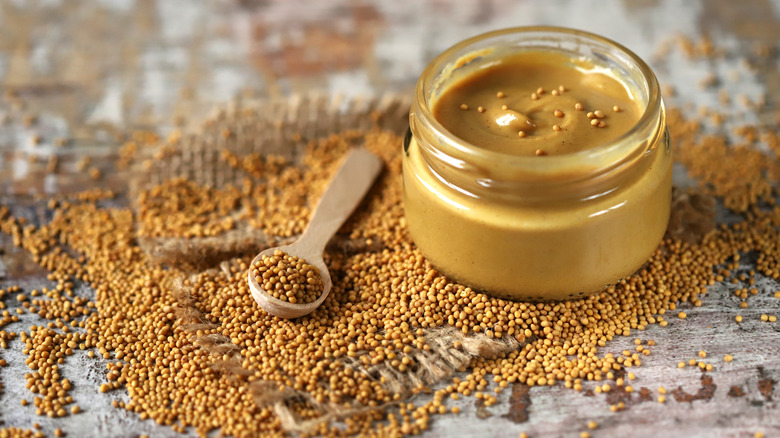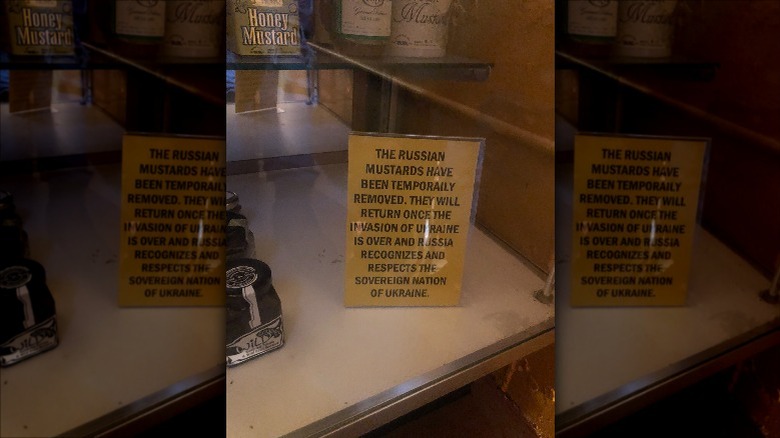National Mustard Museum Changes Its Tune About Russian Mustards
Last week, the Mustard Museum divided Twitter in a moment that will live in viral infamy until the next internet brouhaha. The tweet in question featured a display case from the Mustard Museum. Inside, a sign read, "The Russian mustards have been temporarily removed. They will return once the invasion of Ukraine is over and Russia recognizes and respects the sovereign nation of Ukraine." As one might imagine, this prompted lots of people to joke about how devastated Vladimir Putin would be over the lack of representation Russian mustard has in the Wisconsin-based museum.
However, on March 17, Fox News learned from the museum's curator and founder, Barry Levinson, that the Russian mustards have returned. No, the invasion of Ukraine has not ceased. And no, Putin has not declared his respect for Ukrainian sovereignty recently – quite the opposite.
Rather, Levinson seems to be responding to the sardonic takes his decision inspired. "We know that the makers of the Russian mustards are not responsible for the war in Ukraine," he explained in a statement sent to Fox. "That is why these Russian mustards are still on display." He added that a concrete way to help Ukrainians is to donate to the International Rescue Committee.
Doesn't cut the mustard
While perhaps an extreme example, the removal of Russian mustards from the Mustard Museum is emblematic of people feeling the need to show symbolic support for Ukraine even if they may have yet to think it through. Similar gestures that could seem more meaningful on the surface might not cut the mustard whether a museum's involved or not.
In food news, another big example of a brand ban was people dumping large quantities of vodka because it is perceived as a Russian drink. Except, as CNN reported, even some of the most popular vodka brands aren't necessarily all that Russian. For example, despite its very Russian name, Smirnoff is owned by a British company and is largely distilled in Illinois. There are Russian brands that are imported, but they constitute about 1% of the vodka Americans actually drink. Of course, even if Smirnoff was as Russian as one of the briefly shunned mustard makers, an observer could still think (much like Levinson told Fox), that the brand is not to blame.
Mike Lee, an associate professor of marketing at the University of Auckland, wrote in The Conversation that for such boycotts to really be effective, there need to be government sanctions. However, even if people donate to organizations helping refugees, some may still feel the need to lend their money to a message against Russia. In that case, Lee continues, it's more effective to buy from companies that promote messages you agree with.

